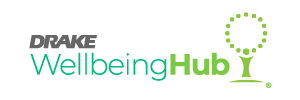In today’s fast-paced world of hybrid work, tight deadlines, and ever-changing expectations, many of us have felt the pressure build. But what happens when that pressure doesn’t go away—or worse, when it becomes part of our everyday work experience?
That’s where psychosocial risk comes in.
What Is Psychosocial Risk?
Psychosocial risks refer to aspects of work that can negatively affect your mental health, emotional wellbeing, and even physical health. These aren’t caused by a single event, but rather by ongoing conditions in the workplace that create stress, anxiety, or disconnection.
Some common examples include:
-
Unreasonable workloads or constant pressure to perform
-
Unclear roles, poor communication, or a lack of direction
-
Conflict, bullying, or difficult team dynamics
-
Lack of support, feedback, or recognition
-
Feeling isolated or excluded, especially in remote or hybrid settings
When these risks go unaddressed, they don’t just affect your work—they can spill over into your sleep, relationships, energy levels, and mental health.
Why It Matters (Especially in Australia & New Zealand)
Studies have shown that workers in both Australia and New Zealand are experiencing rising levels of workplace stress and burnout:
-
According to the Australian HR Institute (2024), 67% of Australian employees reported feeling overwhelmed by work-related stress at least once a week.
-
In New Zealand, research by Umbrella Wellbeing Ltd (2023) revealed that psychological distress among workers has increased by 23% since 2020, with workload, unclear expectations, and poor leadership identified as key contributing factors.
-
The Safe Work Australia model Code of Practice on managing psychosocial hazards, which came into effect in 2023, highlights the legal and ethical duty for employers to create mentally healthy workplaces.
-
Similarly, WorkSafe New Zealand has emphasised the need for organisations to proactively manage psychosocial hazards under the Health and Safety at Work Act 2015.
In short: it’s not just a wellbeing issue—it’s a workplace safety issue.
What Can You Do About It?
You don’t have to wait until things feel unmanageable to take action. If you’ve noticed any of the following, you might be experiencing the effects of psychosocial risk:
-
Trouble sleeping or switching off after work
-
Increased anxiety, frustration, or feeling emotionally flat
-
A sense of disconnection or not being valued
-
Feeling like you’re constantly catching up
The good news? Support is available—and it's free, confidential, and easy to access through your EAP.
Whether you just want to talk something through, or you’re ready to make some changes, you’ll be supported by a professional who understands what you’re going through and can help you navigate a better path forward.
You deserve to feel safe, supported, and valued at work.
If something doesn’t feel right, your EAP is here—before crisis hits.
👉 Reach out today. It’s confidential, non-judgmental, and designed to support you.

 CA-EN
CA-EN
 UK
UK
 AU
AU
 US
US
 NZ
NZ
 PH
PH
 ZA
ZA
 SG
SG
 HK
HK








